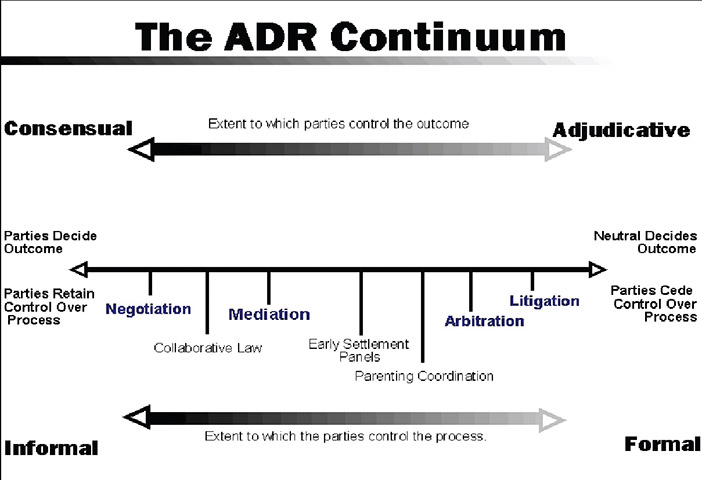
A marriage that ends in divorce, which causes even the altar in the Holy Temple to shed tears (Gittin 90b), is an unfortunate and disruptive event not only for the individuals involved, but also for their friends, families and community. Still, if divorce is the inescapable route that a couple must take, the Torah recognizes this reality and prescribes how to deal with it.
Beyond the event of divorce itself, our community must address a related societal concern—the how of divorce, particularly, the bitter, hostile and destructive consequences that often result when a husband and wife separate and end their marriage. Whether adjudicating their divorce through civil court or through a beit din (Jewish court), all too often it is done with one spouse pitted against the other, as adversaries. The repercussions of this adversarial attitude cannot be overstated. It is destructive to the couple themselves, their children and everyone around them.
The Conventional Divorce: An Adversarial Process
A look at the conventional method for obtaining a civil divorce reveals a general attitude of conflict and competition. Why do the friends of a spouse who is contemplating divorce encourage their friend to seek a “shark” for an attorney so that s/he can soak the other spouse for all s/he is worth? Or, for others, so that s/he will be protected? Why must one spouse be compelled to prove that the other spouse is an “unfit” parent so that s/he does not “lose” the children? Why do the civil courts refer to one spouse as “plaintiff” and the other as “defendant”? These strategies and this nomenclature accurately demonstrate that in our surrounding society, an adversarial nature (plaintiff versus defendant) is inherent to the process of divorce.
This is not the Jewish approach. From a Torah perspective, an ex-spouse is not a categorical exception to the Biblical commandment of loving thy neighbor. Love and the pursuit of peace is mandated even for those in the midst of conflict. Our Sages teach us that truth, justice and even God’s name are compromised for the purpose of establishing shalom. Indeed, for a Jewish family, just because there is not one bayis, does not mean there should not be shalom.
But is there an alternative? Can there still be a place for family values, or better yet, Jewish values within the divorce process?
A Look at the How: There Are Choices
As with any conflict, it is helpful to realize that there is a continuum of choices available to a couple in working out the terms of their divorce. On one end of this continuum, the couple can sit over a cup of coffee at a Starbucks and try to work out their differences. As admirable as this process is, most couples are not going to be able to resolve their divorce on their own. Between the emotional dynamics and triggers, lack of objectivity and not knowing all the legal and financial issues, most couples need at least some guidance. Even divorce attorneys themselves, as a rule, will hire their own attorney when going through a divorce.
On the other end of the continuum is an all-out battle or, in a legal context, litigation. Between these two ends of the continuum are numerous alternatives to help resolve disputes and/or improve relations with one another. Too often not knowing where else to turn, or out of societal default reflex (enhanced by heightened fear and insecurity), the couple turns to their divorce lawyers, often leading them to enter into an independent universe (the court system) familiar to some, understood by few and detested by all.
The immediate reflex to retain a litigator as the first step in a divorce is particularly peculiar if you consider New Jersey divorce statistics: Less than 1 percent of all divorces end up being decided by a court of law. Realizing this, as much as everyone wants their “day in court,” actually having a judge rule on a couple’s divorce is a statistical anomaly.
A medical analogy is useful: If you had a back problem or another physical ailment, would surgery be your first option? I hope not, especially if a different form of treatment is available claiming to offer all the same benefits of a full cure and recovery without any of the significant costs and risks of surgery. At least, you would seek a second opinion. Turning immediately to litigious attorneys leads to litigious divorces. Litigious divorces lead to real broken (and broke) families. The first step, therefore, is to realize what the alternatives are.
The opportunity for the couple to choose the best track for them is most ripe at the very outset of their decision to get divorced. With a bias towards a couple taking control of their own future by working out their own informed decision-making and settlement, keeping costs down and maximizing the satisfaction of the needs and interests for all family members, it seems to me that we should be doing all we can to keep a couple on the Starbucks side of the continuum as much as possible.
In upcoming columns of Mediating Matters, we will look at various process choices along this continuum, ranging from mediation, collaborative divorce and arbitration.
By Adam J. Berner, Esq., MA
Adam Berner specializes in mediation and collaborative family law, with offices in Manhattan and Hackensack, New Jersey. As a pioneer in the matrimonial dispute resolution field for the past 25 years, he has served as president of the Family and Divorce Mediation Council of NY, founding president of the NJ Collaborative Law Group and founding member of the NY Association of Collaborative Practitioners. In addition to his private practice, Adam serves as a consultant for the Beth Din of America; is a certified mediation trainer; is an adjunct professor at YU’s Cardozo School of Law, where he teaches mediation and collaborative law; and, on occasion, teaches conflict management for rabbis at RIETS.













